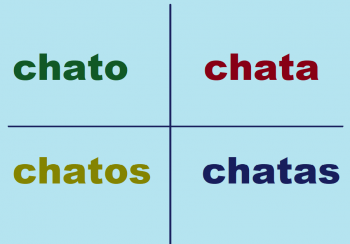Archive by Author
The word ‘enrolar’ in Portuguese Posted by carol on May 11, 2018

Boa tarde, meus queridos leitores! Good afternoon, my dear readers! Vocês estudaram muito português essa semana ou andam enrolando? Did you study a lot of Portuguese this week or have you been stalling? Stereotypes about Brazilians often include the jeitinho brasileiro (our typical way of dealing with things) and our inability to be on time…
Brazilian music – Chico Buarque’s ‘Construção’ Posted by carol on Apr 30, 2018

Boa tarde, leitores! Good afternoon, readers! Did you know that tomorrow, May 1rst, is dia do trabalhador (labor day) here is Brazil? Therefore, it is a holiday for all of us workers to get some rest! In that spirit, today we are going to listen to some music and learn the lyrics to the 1971…
Portuguese listening/reading practice – Figurinhas da copa Posted by carol on Apr 30, 2018

Prática de escuta e leitura em português Boa noite, pessoal! Good evening, everyone! It is time for our April’s listening and reading practice. Today’s selected article is named “O que as figurinhas da Copa ensinam sobre economia?” (What does the World Cup Sticker Album teach us about economy?), recently featured on the economy session from the…
False synonyms in Portuguese – Part II Posted by carol on Apr 24, 2018
Ei, gente! Como está o dia de vocês? Hey, guys! How is your day going? On our last post, we went over some phrases that we have to pay close attention to, because they look very similar but are actually false synonyms. Therefore, their different meanings require them to be used in different situations. Today…
False synonyms in Portuguese Posted by carol on Apr 19, 2018
Ei gente! Hey guys! Como estão vocês? How are you doing? Have you ever found yourself dealing with some words in Portuguese that seemed very similar but was unsure whether they meant the same? Phrases like onde e aonde, em vez de e ao invés de, for instance, are some examples that may cause a…
The word ‘chato’ in Portuguese Posted by carol on Apr 17, 2018

Feliz segunda, gente! Happy monday, everybody! Or don’t you like them? Some people find them very chatas (boring). What do you think? Chato is a very commonplace adjective in Portuguese and its meaning may very slightly, depending on the context. It has a negative connotation, so it can describe something annoying, irritating and obnoxious, but…
The “ai” in Portuguese Posted by carol on Apr 12, 2018

Olá a todos! Hey to all! Interjections are utterances that are used to show the emotions of the person who is saying it and are often exclamatory phrases. “Ah”, “oh” “ew”, “yeah”, “whoa”, “jeez” are all examples of interjeições (interjections) in English. However, the funny thing is that although they are spontaneous reactions, interjections vary…


